Catch lung cancer early.
Because you matter.
In every great story, there’s a moment when the hero takes control. For many people in our community, that moment starts with a simple, fast, low-dose CT scan. If you’ve spent years putting others first, working hard and caring for family, this screening is your chance to put your health back at the center, which is vital because early detection saves lives.
A low-dose CT scan can find lung cancer long before symptoms appear, when it’s most treatable. And if you meet the guidelines, this screening is designed specifically for you. You may qualify if you:
- Have a 20-pack-year or more history of smoking. That means smoking one pack a day for 20 years or two packs a day for 10 years.
- Smoke now or quit within the past 15 years.
- Are between 50 and 80 years old.
- Have no signs or symptoms of lung cancer.
If that sounds like you, then you’re eligible and the hero of this story. By choosing to get screened, you’re taking a powerful step to protect your future and stay present for the people who count on you.
The scan itself is simple. Here are the basics:
20% Better chance of | Painless. | Only takes |
No medication. | No needles. | 5% Of eligible |
Your life and your goals matter. A low-dose CT scan is one small action that can make a life-changing difference.
Take the step and be the hero of your health by talking to your doctor today.
It only takes a minute to take charge of your lung health. Visit genesishcs.org/screenings.
Ready to get healthy?
Sign up for our digital newsletters to receive health tips, recipes, success stories for inspiration and information about new doctors to help you on your journey to better health.
Genesis HealthCare System’s Health and Wellness content conveniently provides accurate and helpful information. Your health history and current health may impact suggestions provided through our Health and Wellness content. Although we hope this information is helpful, it is not a substitute for your doctor's medical advice. Before making any significant changes, please consult your doctor.
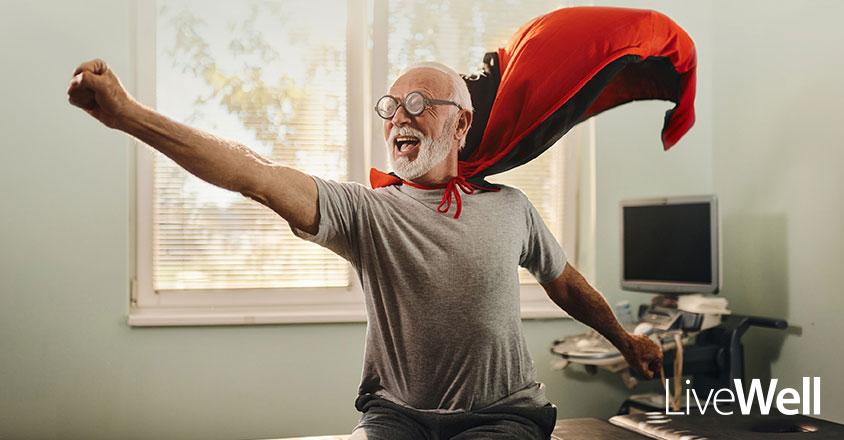
A low-dose CT scan can find lung cancer long before symptoms appear, when it’s most treatable.
Take care of the back that carries you.
A quiz for everyday heroes.
You lift, bend, sit and stretch your way through busy days. You care for others, help at home and keep life running smoothly. Your back supports it all. This quick quiz can help you see if you’re giving your spine the same support it gives you.
Your partner in back health
“Most back pain comes from small habits that build up over time,” said Melissa Cook, Physical Therapist at Genesis Outpatient Rehabilitation. “The good news is small changes can make a big difference.”
Your next step
Whether you aced the quiz or learned a few new tips, remember caring for your back means caring for yourself.
Support your spine. Find more wellness tips at genesishcs.org/wellness.
Ready to get healthy?
Sign up for our digital newsletters to receive health tips, recipes, success stories for inspiration and information about new doctors to help you on your journey to better health.
Genesis HealthCare System’s Health and Wellness content conveniently provides accurate and helpful information. Your health history and current health may impact suggestions provided through our Health and Wellness content. Although we hope this information is helpful, it is not a substitute for your doctor's medical advice. Before making any significant changes, please consult your doctor.
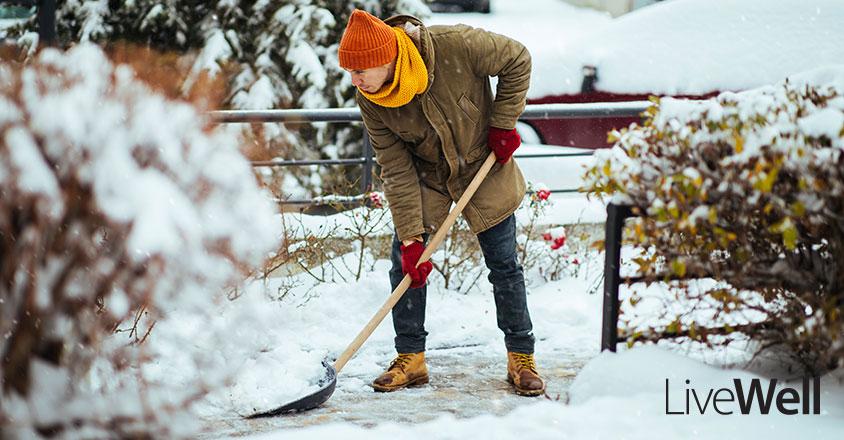
Take this quick quiz to see if you’re giving your spine the same support it gives you.
Breathe easier this winter
Q&A with Genesis ENT Group Surgeon Eric Antonucci, M.D.
Winter often brings unwanted congestion and sinus pressure. But you want your family to stay active and enjoy the season, not sit on the sidelines.
Eric Antonucci, M.D., Ear, Nose & Throat Surgeon (ENT) at the Genesis ENT Group, answers common questions to help your family breathe easier.

Eric Antonucci, M.D.
Ear, Nose and Throat Surgeon
Genesis ENT Group
How might I know if symptoms are a cold, sinus infection or winter allergies?
“All three have overlapping symptoms, including coughing, sneezing and congestion. Infections have additional symptoms, such as fever and fatigue. Viruses usually run their course in about 10 days. Bacterial infections can stick around longer, especially without the help of antibiotics.”
How can I prevent winter sinus and allergy problems?
“Encourage your family to wash their hands often. Keep dust under control with regular vacuuming, fresh bedding and air purifiers.”
Are allergy medications effective during the winter?
“They can make a difference. When your body reacts to something harmless, like pollen, it releases histamine. This causes sneezing, itchy eyes and a runny nose. Saline rinses and antihistamine pills can bring relief. Nasal sprays can help reduce swelling and congestion. Talk with your doctor about your symptoms to find the best option.”
Fact or fiction?
Sinus infections can spread.
“Fact. Viral infections, such as the common cold, can pass from person to person. Bacterial infections are less contagious but can still spread.”
Vitamin C supplements help prevent colds.
“Fiction. A healthy diet usually provides enough vitamin C, so additional supplements aren’t too helpful to protect against colds.”
Drinking plenty of water promotes healthy sinuses.
“Fact. Increased hydration keeps mucus thin and your sinuses clear.”
Understanding common sinus and breathing issues can help you and your family breathe more easily. Simple habits, like staying hydrated, maintaining a healthy diet and washing hands regularly, can make a big difference.
Keep your family feeling their best. Read more at genesishcs.org/wellness.
Ready to get healthy?
Sign up for our digital newsletters to receive health tips, recipes, success stories for inspiration and information about new doctors to help you on your journey to better health.
Genesis HealthCare System’s Health and Wellness content conveniently provides accurate and helpful information. Your health history and current health may impact suggestions provided through our Health and Wellness content. Although we hope this information is helpful, it is not a substitute for your doctor's medical advice. Before making any significant changes, please consult your doctor.
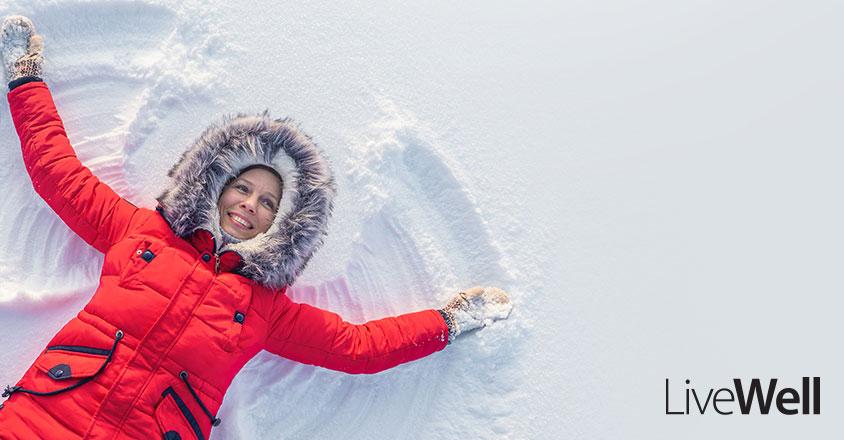
Eric Antonucci, M.D., ENT at the Genesis ENT Group, answers common questions to help your family breathe easier this season.
Gentle chair yoga
Simple moves to feel better every day
Looking for an easy way to reduce stiffness, improve flexibility and boost your mood? Chair yoga is a gentle, low-impact way to stretch and strengthen your body, making it perfect for all ages and abilities. Whether you’re at home, at work or anywhere in between, these poses can help you feel more relaxed and energized.
Follow along with the pictures and try each move at your own pace.
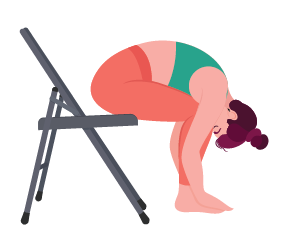
Chair forward fold
Sit tall at the edge of your chair with feet flat on the floor. Slowly hinge forward from your hips, letting your arms reach toward the ground. Relax your head and neck as gravity gently stretches your back and hamstrings. Breathe deeply and slowly roll back up to a sitting position.
Benefits: Relieves tension in your lower back, neck and shoulders.
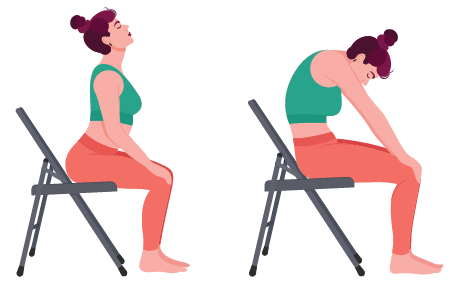
Chair cat cow
Sit with your hands on your knees. As you inhale, lift your chest and gently arch your back (Cow). As you exhale, round your spine and tuck your chin toward your chest (Cat). Move slowly with your breath.
Benefits: Improves spine mobility and reduces stiffness.
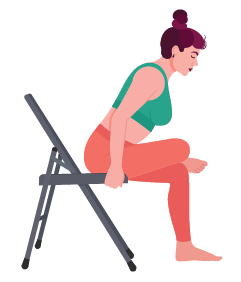
Seated figure four
Sit tall and cross your right ankle over your left knee, forming a “4” shape. Keep your foot flexed to protect your knee. Lean forward slightly if it feels comfortable. Repeat on the other side.
Benefits: Opens tight hips and glutes, helping ease lower-back discomfort.
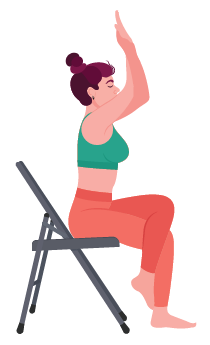
Seated Eagle Arms
Sit upright and stretch your arms forward. Cross your left arm under your right, then bend your elbows and try to touch palms (or hands to shoulders if needed). Lift your elbows slightly and breathe. Switch sides.
Benefits: Stretches shoulders and upper back, improving posture.
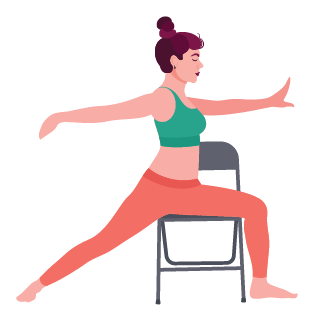
Seated warrior II
Sit on the edge of the chair and turn your body to the left side. Extend your right leg behind you, keeping toes on the floor. Raise your arms in each direction until they are parallel to the floor and face forward. Repeat on the other side.
Benefits: Strengthens legs and core while opening the chest and hips.
Tips:
• Move slowly and breathe deeply.
• Never push into pain. Gentle stretching is the goal.
• Check with your doctor before starting a new exercise routine if you have medical concerns.
A few minutes of chair yoga each day can help you feel more flexible, balanced and calm. Try these poses regularly and enjoy a healthier, happier you.
Expand your yoga practice
Chair yoga is a great way to stay active and improve flexibility.
You can explore additional poses to further improve your strength, balance and confidence.
Learning terms like “asana” and “vinyasa” is easy and part of the fun.
Many movements can be adapted for any ability, so you can progress at your own pace while enjoying all the benefits yoga offers.
Learn more at genesishcs.org/expand-yoga.
Ready to get healthy?
Sign up for our digital newsletters to receive health tips, recipes, success stories for inspiration and information about new doctors to help you on your journey to better health.
Genesis HealthCare System’s Health and Wellness content conveniently provides accurate and helpful information. Your health history and current health may impact suggestions provided through our Health and Wellness content. Although we hope this information is helpful, it is not a substitute for your doctor's medical advice. Before making any significant changes, please consult your doctor.
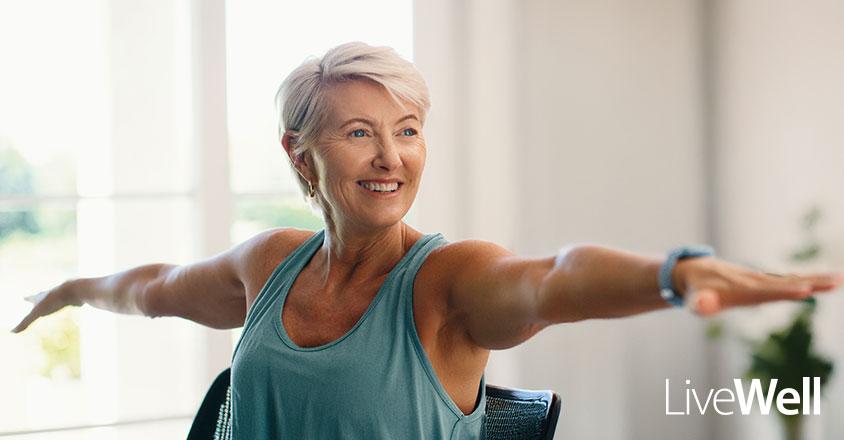
These simple chair poses can be done at home, at work or anywhere to help you feel more relaxed and energized.
February is National Heart Month.
You deserve a strong, healthy heart, and we’re here to help.
Every day, people in our community search for clear, trustworthy guidance to keep their hearts healthy. At Genesis, we believe you shouldn’t have to look far to find it. That’s why over the past year, we’ve shared over 50 pieces of heart-health information to help families stay informed, confident and in control of their well-being.
Whether you want to prevent heart issues or better understand a diagnosis, we make it simple to get the answers you need, from the experts you trust, near home.
Tips the way you like them
Watch videos where heart specialists share their experience, what inspires them and how they care for patients like you every day.
Stay informed with weekly tips
Our blog is packed with easy-to-read articles, quizzes and more. Plus, it often features information to help build good habits and maintain a healthy heart.
Be inspired
Discover stories from your neighbors who had heart procedures, recovered and returned to the moments and people they love most.
Understand your options
From MitraClip to Transcarotid Artery Revascularization, watch videos where our physicians explain advanced and minimally invasive heart procedures in ways that are easy to understand.
Listen and learn on the go
Tune in to physician-led podcasts that explain conditions and treatments, so you feel confident in your health journey.
New AED loaner program
Hosting an event? You can borrow an AED (Automated External Defibrillator) for free for heart emergencies from Genesis. For qualifications, visit genesishcs.org/aed.
Take the next step toward a healthier heart
You don’t have to navigate heart health alone, and you don’t need a medical degree to feel informed. Your heart matters and we’re here to help you keep it strong. Visit genesishcs.org/wellness to learn more.
Ready to get healthy?
Sign up for our digital newsletters to receive health tips, recipes, success stories for inspiration and information about new doctors to help you on your journey to better health.
Genesis HealthCare System’s Health and Wellness content conveniently provides accurate and helpful information. Your health history and current health may impact suggestions provided through our Health and Wellness content. Although we hope this information is helpful, it is not a substitute for your doctor's medical advice. Before making any significant changes, please consult your doctor.
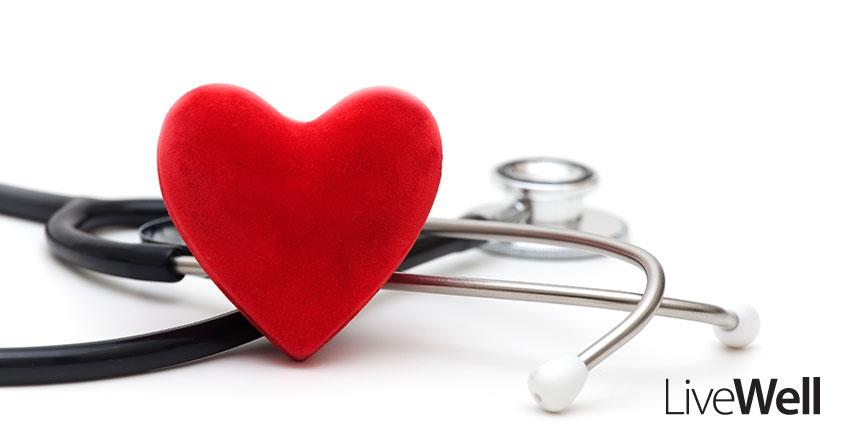
Visit our online resources to help you stay informed, confident and in control of your well-being.
Stopping the silent killer.
A surgeon’s mission to prevent heart disease.
Surender Neravetla, M.D., FACS, knows the human heart better than most. As a board-certified thoracic surgeon, he’s spent decades performing life-saving heart procedures. However, these days, Dr. Neravetla’s mission is more than repairing hearts. He is also focused on helping people protect their hearts before heart disease begins.
“I’ve seen too many patients on the operating table whose heart problems could have been prevented,” Dr. Neravetla said. “That’s why I’ve shifted my focus to prevention. We can do a lot to stop heart disease before it starts.”
Dr. Neravetla agrees wholeheartedly with the American Heart Association’s finding that up to 80% of heart disease is preventable. The key is understanding the everyday habits that quietly damage our cardiovascular system.
One of the biggest culprits? High blood pressure.
Known as the silent killer, high blood pressure often doesn’t have symptoms but can lead to serious complications such as heart attack, stroke and kidney failure. “High blood pressure is one of the most common health problems in the world,” said Dr. Neravetla. “What’s most frustrating is that it’s largely caused by something we do, which is adding salt to our food.”
Our bodies need a small amount of sodium to function, which is already in the natural foods we eat. The result of too much salt is extra fluid in the bloodstream, which puts pressure on blood vessel walls and forces the heart to work harder. Over time, this constant strain can damage arteries and increase the risk of heart disease.
Dr. Neravetla encourages everyone to take three simple steps for better health. Reduce, substitute or eliminate table salt. Start by reducing how much prepackaged food you eat and how often you dine out. You should also reduce how much salt you sprinkle on your meals. Substitute flavorful herbs and spices instead of relying on salt for taste. When possible, eliminate processed foods, which often contain hidden sodium.
“These small changes can make a huge difference,” Dr. Neravetla said. “Every meal is a chance to protect your heart.” His message is clear. Prevention isn’t complicated.
It’s practical. By being mindful of how much salt we consume, we can take one powerful step toward better heart health.
Dr. Neravetla reminds patients that heart disease doesn’t have to be their story. “With the right choices, you can create a happier story, one that begins with less salt and results in a stronger, healthier heart.”
1,500 mg*
of daily salt consumption is
a standard goal
2,300 mg
should be the most salt
consumed in a day
3,300 mg
of salt on average
are consumed by Americans daily
*Mg stands for milligrams
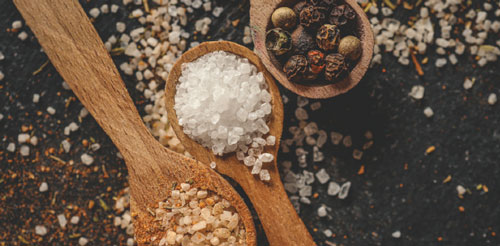
It is hard to be excited about bland food. If you are trying to reduce your salt intake and still enjoy mealtimes, try adding other seasonings. To learn more, take our salt alternatives quiz at genesishcs.org/salt-alternatives.
Protect your heart. Visit genesishcs.org/heart.
Ready to get healthy?
Sign up for our digital newsletters to receive health tips, recipes, success stories for inspiration and information about new doctors to help you on your journey to better health.
Genesis HealthCare System’s Health and Wellness content conveniently provides accurate and helpful information. Your health history and current health may impact suggestions provided through our Health and Wellness content. Although we hope this information is helpful, it is not a substitute for your doctor's medical advice. Before making any significant changes, please consult your doctor.
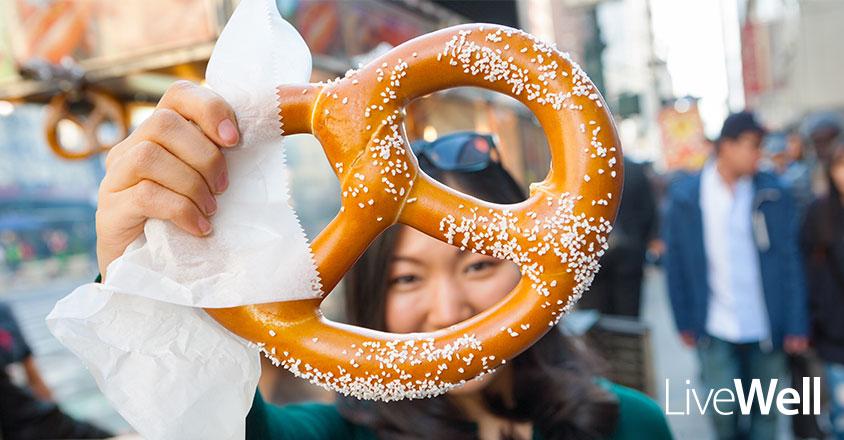
Surender Neravetla, M.D., FACS, Board-certified Thoracic Surgeon at the Genesis Heart & Vascular Group, reminds patients that heart disease doesn’t have to be their story.
Foods to help support brain health
Your brain works hard, keeping you on track, helping you make decisions and staying focused. A few smart, delicious foods can help keep you energized and ready for the day. |
Genesis Food & Nutrition recommends these top brain boosters:
Spinach, kale and broccoli
Salmon or sardines
Walnuts
Blueberries, strawberries and raspberries
Tea and coffee
A healthy brain offers many other benefits as well:
Improves memory
Boosts energy
Lifts mood
Reduces stress
Powers your body for the day
Supports overall health
Every meal is an opportunity to support your brain. Simple, wholesome ingredients make healthy eating enjoyable, satisfying and a natural part of your routine.
Ready to get healthy?
Sign up for our digital newsletters to receive health tips, recipes, success stories for inspiration and information about new doctors to help you on your journey to better health.
Genesis HealthCare System’s Health and Wellness content conveniently provides accurate and helpful information. Your health history and current health may impact suggestions provided through our Health and Wellness content. Although we hope this information is helpful, it is not a substitute for your doctor's medical advice. Before making any significant changes, please consult your doctor.
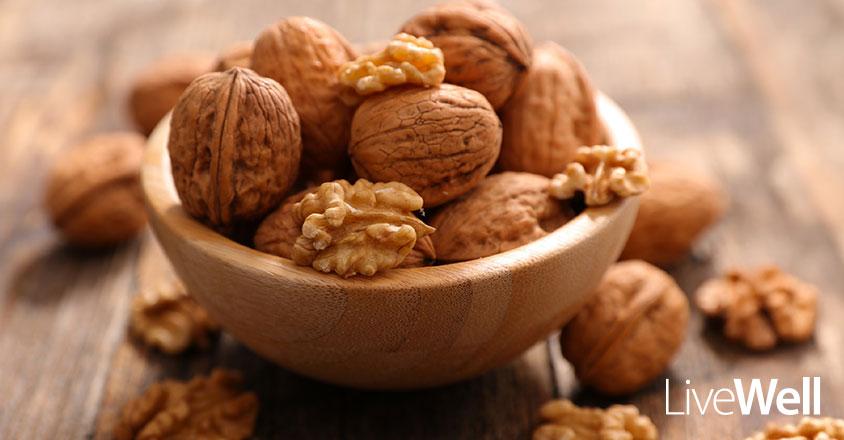
Every meal is an opportunity to support your brain. Simple, wholesome ingredients make healthy eating enjoyable, satisfying and a natural part of your routine.
Pop quiz: How healthy are your instincts?
We all strive to build healthy habits. The right fuel powers our bodies to feel our best. But sometimes our food choices can be misleading, appearing to be healthy. Having the correct information can help you select the best options.
Ready to take a closer look at your plate? Test your knowledge with this quiz and spot the smarter choices.
You don’t need perfection to take charge of your health. With balance and moderation, you can enjoy healthy foods and still treat yourself to a breakfast muffin. Even when your instincts try to trick you, small and thoughtful choices can lead to meaningful results.
Genesis HealthCare System’s Health and Wellness content conveniently provides accurate and helpful information. Your health history and current health may impact suggestions provided through our Health and Wellness content. Although we hope this information is helpful, it is not a substitute for your doctor's medical advice. Before making any significant changes, please consult your doctor.
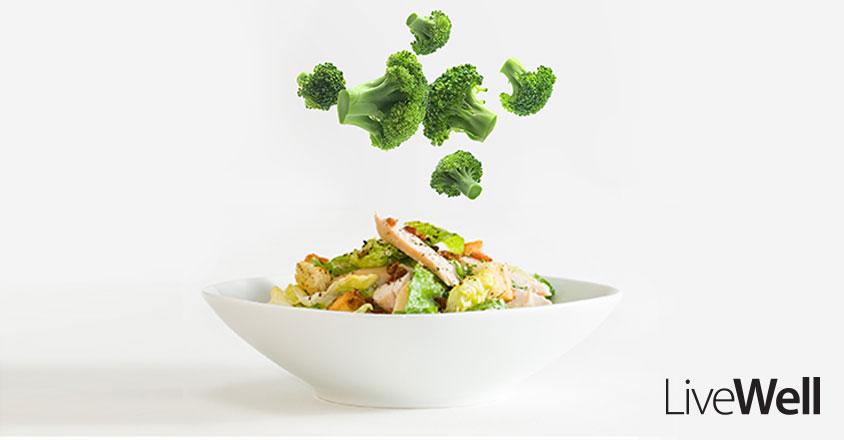
Sometimes our food choices can be misleading.
Sugar smarts fuel strong hearts
Blood sugar management can be challenging. The effects of blood sugar, or blood glucose, go well beyond the pancreas. Our bodies use healthy glucose to keep other organs and systems performing at their best.
Sweet balance
Sugar satisfies your sweet tooth. But your heart prefers it in check. Glucose management can help prevent other medical conditions, such as cardiovascular disease.
Coronary artery disease forms when particles like cholesterol build up in blood vessels that carry blood and oxygen to the heart. Having diabetes raises the risk of “bad” cholesterol levels, known as LDL or low-density lipoprotein.
This buildup hardens arteries, reducing blood flow to the heart. Over time, it increases the chances of a heart attack, heart failure or stroke.
Recognize the signs
For most people with diabetes, a healthy glucose reading before meals is typically between 80 and 130 mg/dL. A few hours after eating, it should be less than 180 mg/dL. Create a care plan with a doctor for when levels are too high or too low.
Watching saturated fat and sodium levels is also important for those with diabetes to reduce their risk for heart-related health issues. If you have prediabetes, Type 1 or Type 2 diabetes and notice these symptoms of heart disease, don’t wait. Talk to your doctor.
Symptoms:
Nausea or vomiting
Chest flutter
Arm pain
Upper body pain
Fast heartbeat
Extreme tiredness
Jaw pain
Call 911 immediately with these warning signs:
Chest pain or tightness
Difficulty breathing
Feeling faint
Even if you don’t have diabetes, ask your doctor about target glucose levels and how they affect your heart and overall well-being.
You have more power over your health than you may think. Every positive change is another heartbeat closer to a healthier, stronger life.
A balanced life with diabetes
Learn about glucose monitoring and listen to the “Sounds of Good Health” podcast with M. Tufail Ijaz, M.D., Fellowship-trained and Board-certified Endocrinologist at Genesis Endocrinology.
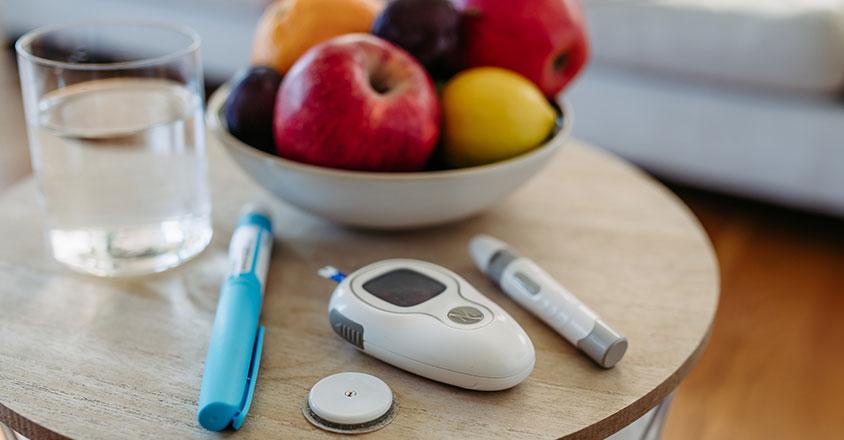
Blood sugar management can be challenging.
Think pink and beat breast cancer
Breast cancer is the most common cancer in women in the United States, except for skin cancers, according to the American Cancer Society. It is also the second leading cause of cancer death in women after lung cancer.
The numbers tell the story:
There is a 1 in 8 chance that a woman will develop breast cancer in her lifetime.
5-year survival rates for breast cancer:
99%
if detected early before it spreads.
86 to 90%
if it spreads to lymph nodes or nearby structures.
30%
if it spreads to distant parts of the body, like lungs, liver or bones.
Early detection matters
Do you know the best way to survive breast cancer? Early detection. And the most effective and accurate way to detect breast cancer is tohave a screening mammogram.
National Comprehensive Cancer Network guidelines recommend all women age 40 and older at average risk of breast cancer should have an annual screening mammogram.
Women with higher-than-average risk of breast cancer should have a clinical breast examination by a physician every 6 to 12 months and should consider a high-risk screening of an annual breast MRI along with an annual mammogram.
Talk with your doctor
Discuss your risk for breast cancer and a plan for a screening mammogram with your Primary Care Physician or your OB/GYN.
To schedule your mammogram, call Genesis Central Scheduling at 740-454-4242.
It’s time to think pink and win the fight against breast cancer.
For more information on cancer screenings, visit genesishcs.org/screenings.
Ready to get healthy?
Sign up for our digital newsletters to receive health tips, recipes, success stories for inspiration and information about new doctors to help you on your journey to better health.
Genesis HealthCare System’s Health and Wellness content conveniently provides accurate and helpful information. Your health history and current health may impact suggestions provided through our Health and Wellness content. Although we hope this information is helpful, it is not a substitute for your doctor's medical advice. Before making any significant changes, please consult your doctor.
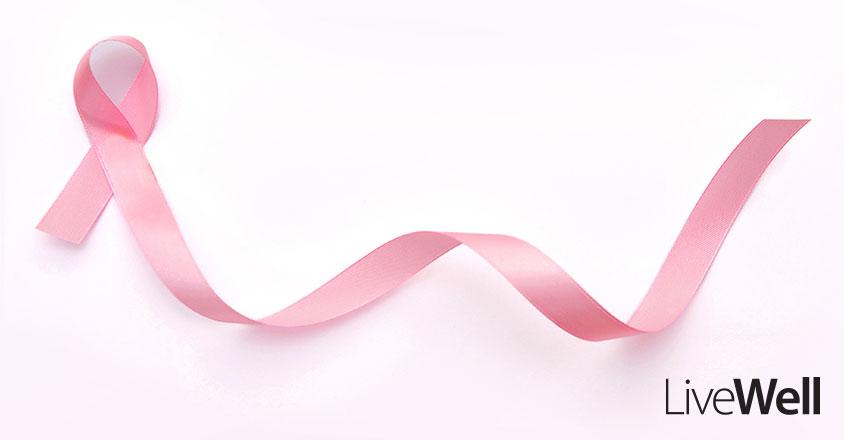
Breast cancer is the most common cancer in women in the United States, except for skin cancers, according to the American Cancer Society.
